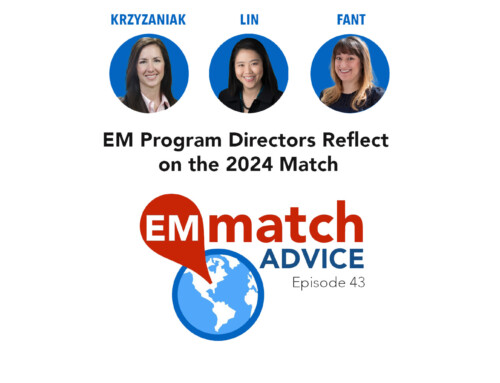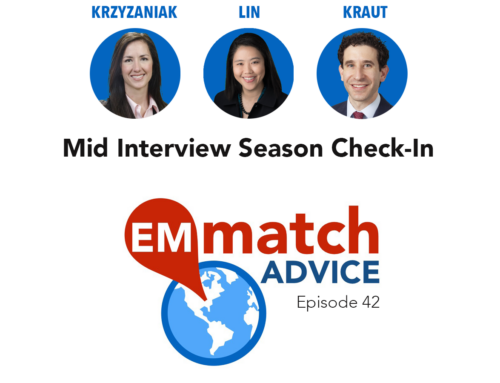“The more that you read, the more things you will know. The more that you learn, the more places you’ll go.”
– Dr. Seuss
Dr. Mike Gisondi is the program director of the Northwestern Emergency Medicine Residency as well as a leader in medical education, faculty development, and palliative care. He has been recognized both locally and nationally for his work, receiving the 2014 ACEP National Emergency Medicine Faculty Teaching Award as well as being appointed as the director of the Feinberg Academy of Medical Educators (FAME). For readers of ALiEM he is probably best known as the host of the EM Match Advice Series. Most importantly, for those of us whom he has directly touched, we know him for his caring, support, wit, and depth of thought. We are excited to have Dr. Mike Gisondi share his book recommendations.
 Dr. Mike Gisondi (@MikeGisondi)
Dr. Mike Gisondi (@MikeGisondi)
Thank goodness this request from Taku for book recommendations came in 2016. Had he asked me last year, I would have been embarrassed at the small number of books I could choose from – and my recommendations would all have been paperback thrillers that you could buy at any airport bookstore. (Yes, I am that guy when it comes to vacation reading. I keep those authors in business.)
It is just tough to find time to read. We have so much material available to us as physicians; keeping up with the medical literature alone is unachievable. Then there are the 100 or so daily E-mails to sift through, representing a huge opportunity cost for pleasure reading and self-improvement. I sometimes get overwhelmed by how much I want to read and how little time I seem to have to do so. I need to maintain a routine with built in time for reading, else it never happens. And I appreciate recommendations from those I admire and trust. (Saves time.)
But 2016 turned a page for my reading habits (pun!), for several reasons. First, when shopping on Amazon, I have stopped resisting the tabs, “Customers Who Bought This Item Also Bought” and “Frequently Bought Together.” Yes, an insane number of impulse purchases have occurred this year, but my unexpected buys have turned into reading lists around a set of themes. I would like to say that was my plan all along, but here I am divulging my reading serendipity. So instead of reading one book on writing, there have been several. Instead of one book on happiness, I now have three. You’re welcome, Amazon.
The other important reason my reading list has matured this year is that I have been reminded just how nice it is to give and receive books. A big public thank you to Taku Taira, who, after a very casual conversation about book recommendations, sent me three. (So very kind.) He will be happy to learn that I paid it forward, sending those same books on to several colleagues around the country. And, I have been gifting other books too for the last several months. It makes book recommendations that much more personal when you click the purchase button online for your friend. Easy to just recommend a book, different to buy the book because it is perfect for someone in particular. Again, you’re welcome, Amazon.
So on to my recommendations. This year I have been reading mostly non-fiction books around the themes of writing, leadership and happiness – three areas that I could always use some pointers.
Manage Your Day to Day: Build Your Routine, Find Your Focus and Sharpen Your Creative Mind. (2013)
[Amazon Link] This is the first of three in the 99U Book Series, a collection of blog posts turned into several easy-to-read books on being creative and productive. These are the above-described gifts from Taku, which I have been sending on to others because I so enjoyed them. Manage Your Day to Day, the first in the series, is full of practical suggestions for how to manage the noise of professional life – in order to make time and prioritize your most important creative work. Much of the advice in this series centers on the development of a routine, which is a huge challenge for emergency physicians living the cycle of shift work. I’ve never had a solid week to week routine, though I recognize all the clear benefits. Over the last several months, I have been incorporating many of the schedule techniques in this book and I am a believer. Thanks again, Taku.
This is the first of three in the 99U Book Series, a collection of blog posts turned into several easy-to-read books on being creative and productive. These are the above-described gifts from Taku, which I have been sending on to others because I so enjoyed them. Manage Your Day to Day, the first in the series, is full of practical suggestions for how to manage the noise of professional life – in order to make time and prioritize your most important creative work. Much of the advice in this series centers on the development of a routine, which is a huge challenge for emergency physicians living the cycle of shift work. I’ve never had a solid week to week routine, though I recognize all the clear benefits. Over the last several months, I have been incorporating many of the schedule techniques in this book and I am a believer. Thanks again, Taku.
How to Write a Lot: A Practical Guide to Productive Academic Writing. (2009)
[Amazon Link]
What a great book! This little gem was written by a psychology professor from Kansas for an audience of academic psychologists; however, the lessons inside will make any writer a little better, no matter the subject. Silvia debunks all the common myths for not writing and offers tons of great tips for becoming a disciplined writer, in a fun and readable style. Similar to the take-home message in the 99U Book Series, building a routine is key. (Did I mention that routine is a lofty goal for me?) While the other book suggests that creativity is unlocked through routine, this book argues that words flow from routine – efficiency in writing. To test Silvia’s premise, I did exactly as he suggested in his book when I wrote this blog post: I woke up, poured a cup of coffee, and opened my laptop. It worked. While that recommendation seems less than novel, it is the daily, habitual practice of that writing ritual that Silvia describes so well. I doubt that I will ever meet you Dr. Silvia, but thanks for a really useful book.
Steal Like and Artist: 10 Things Nobody Told You About Being Creative (2012)
[Amazon Link]
Paired with his follow-up book, Show Your Work!, Kleon inspires artists to do great work and develop… a routine. (Yes, a theme has emerged.) Professional artists who make a living from their work need to be disciplined. Schedules seem antithetical to the creative mind, but Kleon suggests just the opposite – and he does so through simple, yet thoughtful examples from his own professional life. Steal Like an Artist was an ALiEM Book Club selection at this year’s CORD Academic Assembly and I am so glad that I read it. In fact, I have gifted it several times too, in addition to making it the selection for the first Become a Better Educator Book Club sponsored by FAME at Northwestern. Did I blatantly copy the ALiEM book club event? Or did I Steal Like an Artist?
The Happiness Advantage: The Seven Principles of Positive Psychology That Fuels Success and Performance at Work (2002)
[Amazon Link] Here’s the premise: happiness drives success, success doesn’t drive happiness. Achor asks, Why do we spend so much effort only studying those with mental illness, instead of also exploring what makes happy people remain happy? It’s those outliers, the happiest among us, that are the focus of work in the field of positive psychology. Achor describes seven core principles for happiness at work, with numerous narratives from the business world that illustrates his points. He even has data that happy doctors are better doctors. Imagine that.
Here’s the premise: happiness drives success, success doesn’t drive happiness. Achor asks, Why do we spend so much effort only studying those with mental illness, instead of also exploring what makes happy people remain happy? It’s those outliers, the happiest among us, that are the focus of work in the field of positive psychology. Achor describes seven core principles for happiness at work, with numerous narratives from the business world that illustrates his points. He even has data that happy doctors are better doctors. Imagine that.




